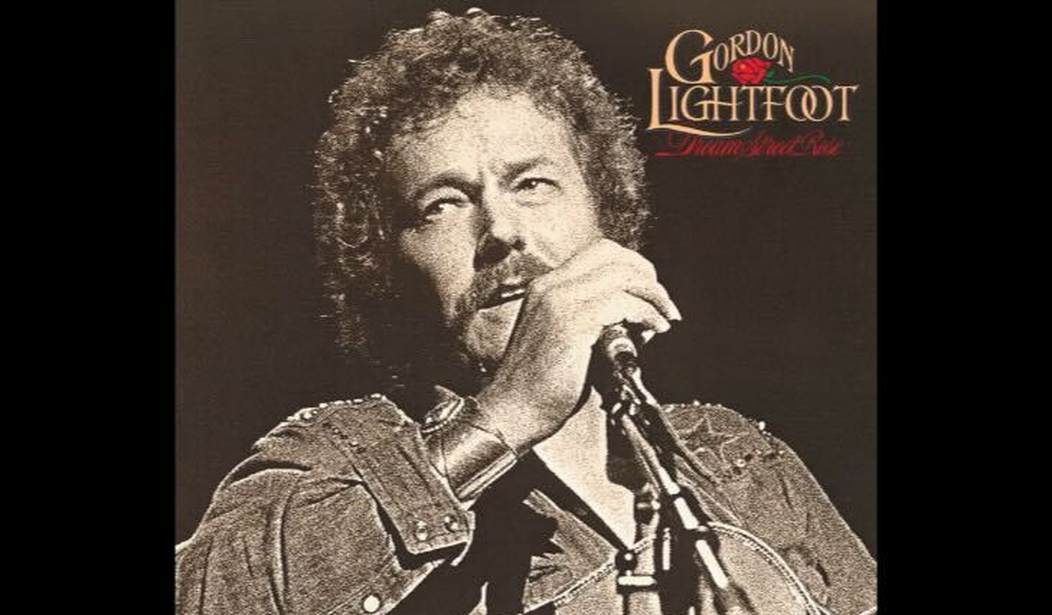Gordon Lightfoot, the Canadian folk artist who scored significant commercial success in the 1970s with songs such as “Sundown” and “The Wreck of the Edmund Fitzgerald,” died on May 1, 2023, of natural causes in Toronto. Lightfoot was 84.
Lightwood first came to public attention in the 1960s through his recordings and other artists covering his songs; for example, Peter, Paul and Mary had a major hit with “For Loving Me“ in 1965. Lightfoot’s commercial breakthrough came in 1970 with “If You Could Read My Mind,“ his plaintive song detailing a disintegrating relationship which climbed to #5 on the Billboard charts.
Lightfoot’s commercial peaks came with his only #1 hit “Sundown“ in 1974, with the album of the same name also reaching the top of the charts, and “The Wreck of the Edmund Fitzgerald“ in 1976, which reached #2 on the charts. The latter told the story of an ore carrier that sank in Lake Superior in 1975, with all aboard losing their lives. It was folk music brought back to its roots as a storytelling method, an art form seldom heard at that time and almost never heard since.
Although his popularity waned somewhat in subsequent years, Lightfoot maintained a vigorous recording and touring schedule, releasing nuggets for the faithful such as 1980’s “Ghosts of Cape Horn.“ Despite his voice growing noticeably weaker as the years went on, Lightfoot insisted on continuing to perform, with a North American tour planned for 2023.
Musically, Lightfoot seldom strayed far from his country/folk roots. His recordings were usually relatively unadorned affairs, often eschewing the seemingly obligatory strings and drums that punctuated much of folk music in the 1970s. He was not reluctant to let his sturdy melodies and fingerpicking acoustic guitar stylings do the talking rather than pander to commercial pop sensibilities.
Lightfoot occasionally drew comparisons to John Denver during his commercial height, but the two had little in common. While Denver was the happy hippie forever crooning tunes about ecology and groovy true love, Lightfoot was the man in the corner of a blue-collar bar, singing songs about the grit of life and relationships. He was the musician you wouldn’t mind knocking back a brew or two with between sets conveniently scheduled between periods of the hockey game.
Lightfoot’s respect from his peers reached the highest levels, including none less than Bob Dylan.
Although Dylan established himself in the mainstream before Lightfoot, he always looked up to the Canadian as though he was a household name. Lightfoot was unsurprisingly on his list when asked about his favourite songwriters during a 2011 interview with Bill Flanagan. Dylan said: “Buffett, I guess. Lightfoot. Warren Zevon. Randy. John Prine. Guy Clark. Those kinds of writers.”
This compliment wasn’t the first time Dylan had publicly expressed his love for Lightfoot’s work, and he’d even claimed the Canadian had crafted the perfect back catalogue. He famously said: “I can’t think of any Gordon Lightfoot song I don’t like. Every time I hear a song of his, it’s like I wish it would last forever… Lightfoot became a mentor for a long time. I think he probably still is to this day.”
Lightfoot’s lyrical gift was letting the listeners fill in the blanks. He seldom spelled everything out. Instead, he would place a few skilled brush strokes on an empty canvas, then invite the listener to fill in the colors with whatever life stories they brought to the tale.
Lightfoot seldom directly addressed political or social matters. Instead, he was far more at ease discussing relationships and offering societal observations through individual stories rather than commenting on society as a whole. Lightfoot was the working person’s poet who knew that while concerns at the alleged top of world matters deserved commentary, the daily mattered the most.
Godspeed, Gordon Lightfoot.













Join the conversation as a VIP Member